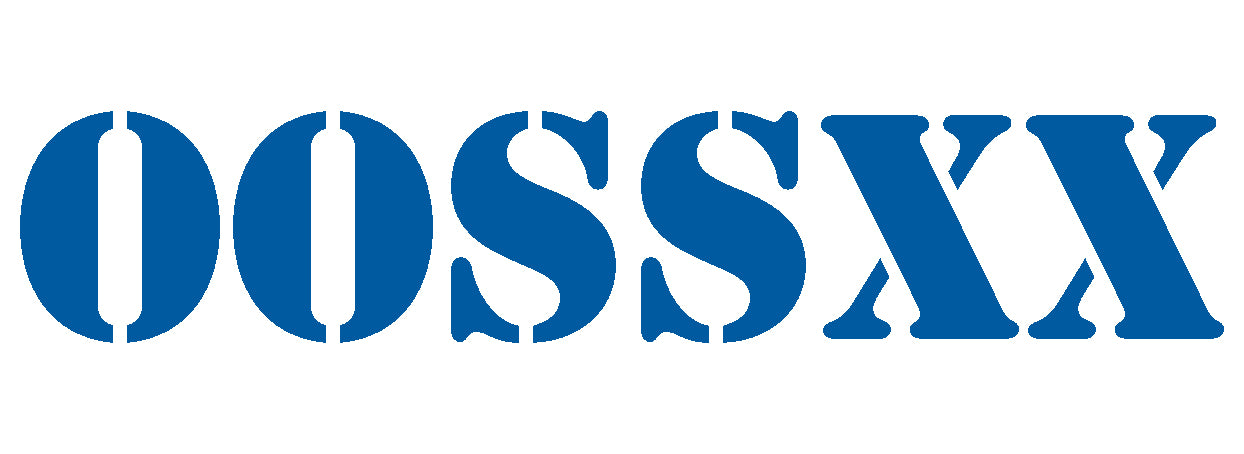Willkommen zum umfassenden Leitfaden der Marke OOSSXX zu Heimüberwachungskameras. In diesem Artikel werden wir verschiedene Arten von Heimüberwachungskameras und ihre Funktionen untersuchen, damit Sie eine fundierte Entscheidung für Ihre Sicherheitsanforderungen treffen können.
Arten von Heimüberwachungskameras basierend auf dem Aussehen:
Je nach Erscheinungsbild gibt es verschiedene Arten von Überwachungskameras, darunter Bullet-Kameras, Dome-Kameras, Turret-Kameras und PTZ-Kameras (Schwenken-Neigen-Zoom).
Bullet-Kameras: Diese Kameras haben eine rechteckige oder zylindrische Form und werden häufig für feste Überwachungspositionen verwendet. Sie bieten eine hohe Wasserdichtigkeit und flexible Brennweitenoptionen, sodass sie für Außenbereiche mit unterschiedlichen Lichtverhältnissen geeignet sind.
Dome-Kameras: Dome-Kameras haben eine abgerundete Form und integrieren oft verschiedene Funktionen wie Kameras, Zoomobjektive, PTZ-Funktionen und Schutzgehäuse. Sie sind ideal für die Überwachung großer offener Bereiche.
Turret-Kameras: Turret-Kameras, auch als Mini-Dome-Kameras bekannt, haben ein kompaktes und ästhetisches Design. Sie werden häufig in Bürobereichen, Fluren, Aufzügen und anderen festen Positionen eingesetzt.
PTZ-Kameras: Diese Kameras sind mit einem Schwenk-Neige-Zoom-Mechanismus ausgestattet, der eine horizontale und vertikale Drehung ermöglicht und so eine umfassende Abdeckung ermöglicht. Einige moderne PTZ-Kameras verfügen sogar über automatische Tracking-Funktionen.
Derzeit sind PTZ-Domekameras für den Heimgebrauch aufgrund ihrer einfachen Installation, flexiblen Platzierungsmöglichkeiten und vielseitigen Steuerungsfunktionen beliebt. Es gibt auch spezielle Kombinationen wie Turret-PTZ-Kameras oder Fischaugen- und Kartenkameras, die auf spezielle Anforderungen zugeschnitten sind.
Arten von Heimüberwachungskameras basierend auf der Stromversorgung:
Die Stromversorgung von Heimüberwachungskameras kann auf verschiedene Arten erfolgen, unter anderem über das Stromnetz, Power over Ethernet (PoE), Batterie oder Solarenergie.
Netzstromversorgung: Diese herkömmlichen und weit verbreiteten Kameras werden über einen 12-V/24-V-Netzadapter an eine 220-V-Stromquelle angeschlossen. Sie sind kostengünstig, können jedoch in manchen Fällen zu Unannehmlichkeiten und ästhetischen Problemen führen.
Power over Ethernet (PoE): PoE-Kameras werden über ein einziges Ethernet-Kabel mit Strom versorgt und übertragen Daten. Sie können längere Übertragungsdistanzen unterstützen und sind für mehrere Kameras oder erweiterte Überwachungsanforderungen geeignet. Sie erfordern jedoch einen PoE-Switch oder PoE-NVR, was die Gesamtkosten erhöhen kann.
Batterie- und Solarstrom: Kameras, die mit Batterien oder Solarzellen betrieben werden, sind einfach zu installieren, da sie keine Verkabelung benötigen. Allerdings sind sie relativ teuer und weniger stabil, weshalb sie sich eher für temporäre oder Außenüberwachungszwecke eignen.
Arten von Heimüberwachungskameras basierend auf der Netzwerkkonnektivität:
Heimüberwachungskameras können über Ethernet, WLAN oder Mobilfunknetze verbunden werden.
WLAN: Kameras mit WLAN-Konnektivität bieten eine einfache Einrichtung ohne Verkabelung. Allerdings sind sie durch die Reichweite des Routers begrenzt und anfällig für Störungen.
Ethernet: Über Ethernet-Kabel angeschlossene Kameras bieten stabilere und zuverlässigere Netzwerkverbindungen mit Übertragungsdistanzen von bis zu 100 Metern. Sie erfordern jedoch zusätzliche Verkabelung und sind möglicherweise ästhetisch nicht so ansprechend.
Mobilfunknetze: Kameras, die Mobilfunknetze (3G/4G) verwenden, sind nicht auf WLAN oder Kabelverbindungen angewiesen. Sie sind einfach einzurichten und können per Fernzugriff verwendet werden, aber die Verwendung von Mobilfunkdaten kann zusätzliche Kosten verursachen.
Derzeit unterstützen die meisten gängigen Heimüberwachungskameras Wi-Fi-Konnektivität und einige Modelle bieten sogar direkte Verbindungsoptionen über integrierte Wi-Fi-Hotspots für die Offline-Anzeige.
Arten von Heimüberwachungskameras basierend auf dem Speicher:
Heimüberwachungskameras bieten verschiedene Speicheroptionen, darunter Speicherkarten, NVR-Speicher und Cloud-Speicher.
Speicherkarten: Normalerweise Micro-SD- oder TF-Karten, die lokale Videoaufzeichnungen direkt auf der Kamera ermöglichen. Sie sind einfach zu verwenden und kostengünstig. Sie sind jedoch anfällig für Manipulationen und die begrenzte Speicherkapazität kann die langfristige Videoaufzeichnung einschränken.
NVR-Speicher: Netzwerk-Videorecorder (NVRs) empfangen und speichern Videodaten von Kameras über das Netzwerk. Sie unterstützen mehrere Kameraverbindungen und bieten hochauflösende Langzeitaufzeichnungen mit hoher Kapazität. Sie eignen sich für Standorte mit zentralem Überwachungsbedarf, wie Geschäfte, Supermärkte, Büros, Fabriken und Villen.
Cloud-Speicher: Cloud-Speicher ist ein Dienst, der von Sicherheitsanbietern angeboten wird und sicheren und zuverlässigen Remote-Speicher für Videoaufzeichnungen bietet. Er gewährleistet Datenintegrität und -zugänglichkeit für Nachuntersuchungen und die Beweissuche. Allerdings fallen laufende Abonnementkosten an, die sich nach der Speicherdauer richten und je nach Anbieter variieren.
Abschluss:
Zusammenfassend lässt sich sagen, dass bei der Auswahl der richtigen Überwachungskamera für Ihr Zuhause verschiedene Faktoren wie Kameratyp, Stromversorgung, Netzwerkkonnektivität und Speicheroptionen berücksichtigt werden müssen. Es ist wichtig, Ihre spezifischen Anforderungen und Ihr Budget zu bewerten, bevor Sie eine Entscheidung treffen. Mit dem Angebot an fortschrittlichen Überwachungslösungen der Marke OOSSXX finden Sie das perfekte Kamerasystem, um die Sicherheit Ihres Zuhauses zu gewährleisten.









